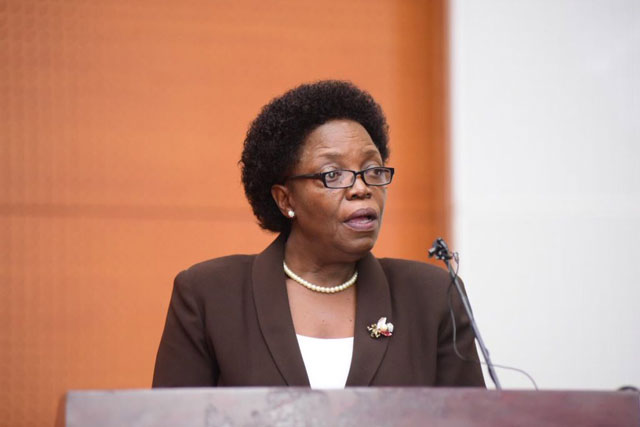
Kampala, Uganda | THE INDEPENDENT | The National Council for Higher Education-NCHE has said that the qualifications of graduates who pursued courses that expired prior to accreditation are still valid.
In a statement released on Tuesday, Professor Mary Okwakol, the Executive Director of NCHE, emphasized that despite the possibility of the programmes being due for reassessment and reaccreditation, they still adhere to the minimum standards.
“NCHE wishes to assure the public that and all stakeholders around the world that qualification of graduates on programmes that received prior accreditation, in accordance with the NCHE minimum standards and regulations, by NCHE they are valid,” the statement reads in part.
Recently, the issue of expired programmes has sparked panic among universities, students, and the general public. This concern was heightened after a Ugandan student’s application for a postgraduate program at a European university was rejected.
The recent incident of students missing out on lifetime opportunities to enroll in European universities has caused widespread alarm throughout the country. Students and graduates whose courses were listed as expired on the NCHE website have been anxiously seeking clarification about their future.
There has been prevailing fear among them that their degrees may be invalidated or that they may be required to repeat years of study at the university, similar to the consequences that happen to those who enroll in unaccredited academic institutions.
Earlier on Tuesday, it was reported that the Council had convened a crisis meeting to address the issue. During the discussions, as disclosed by an anonymous source from the Council who is not authorized to speak on behalf of NCHE, the current regulations pertaining to expired programs lacked explicit clarity.
“The absence of clear guidelines in the regulations has generated concerns and intensified scrutiny regarding the consequences for students who pursued programmes that are now classified as expired, despite having received earlier accreditation,” the source informed our reporter approximately seven hours prior to the final decision on the matter.
This lack of clarity has added to the complexity of the situation and further fueled the need for urgent resolution and clarification on how to handle the affected programmes and the students involved.
However, there are still some education experts who argue that according to the law, if a student enrolls in an expired programme, their studies are considered null and void.
Professor Venansius Baryamureba, known for his extensive knowledge of higher education administration, supports this viewpoint.
Baryamureba, who is currently the Chancellor of Ibanda University, suggested that NCHE should seek legal advice from the Attorney General before making a decision on this matter. He emphasized that it is a complex issue that requires careful consideration and proper legal guidance.
To further address the situation, the NCHE not only assured graduates but also issued a reminder to universities and other educational institutions regarding the regulations related to programme re-accreditation.
The council emphasized that it is mandatory for institutions to submit their programs for re-assessment within a specified six-month timeframe. This measure is aimed at ensuring that institutions proactively take the necessary steps to comply with accreditation requirements and uphold the quality standards of their programs.
“… Institutions with programs that need re-assessment are urged to submit them for re-assessment, in any case by November 30, 2023,” the statement noted.
According to the NCHE website, a significant number of programs, over 1,470, have expired in both public and private academic institutions over the past five years. The expired programs encompass both graduate and undergraduate courses, with varying expiration periods depending on the specific academic institution.
Many of these programs have expired for at least five years, yet universities have continued to admit students contradicting the regulations set forth for higher education. Some institutions have programs that expired more than a decade ago, while there are others that currently have no programs under review.
According to regulations and internationally accepted standards, institutions are obliged to resubmit their programs for reassessment after a designated period of time. In Uganda, this period is every five years for master’s, bachelor’s, and diploma programs, and every ten years for PhD programs.
During the reassessment process, NCHE examines whether the key aspects that led to the prior accreditation of the program are still in place. This evaluation includes several factors such as assessing the program’s relevance to the market and the nation, ensuring compliance with minimum standards, evaluating the quality of graduates, and verifying adherence to the program design, which includes content, contact hours, teaching methods, and assessment.
Furthermore, the NCHE reiterated its stance on universities that claimed specific programs listed as expired on the website had been scrapped, merged, or improved. The council reminded them that any such actions taken by the universities should have been duly communicated to the council in accordance with the regulations.
****
URN
 The Independent Uganda: You get the Truth we Pay the Price
The Independent Uganda: You get the Truth we Pay the Price




Government should give jobs to the graduates of those expired courses in order for them to be calm and some of the leaders should have heart of humility. Just imagine if it was you how would it be panic to you.
Not good at all,why did NCHE allow the courses in Uganda?